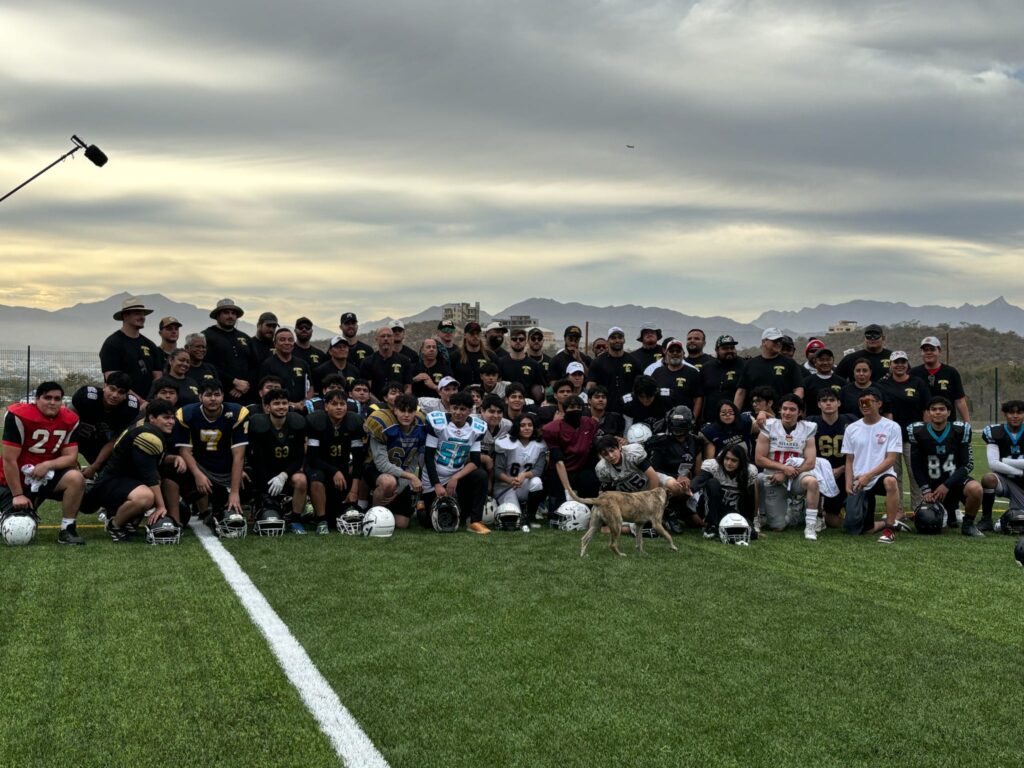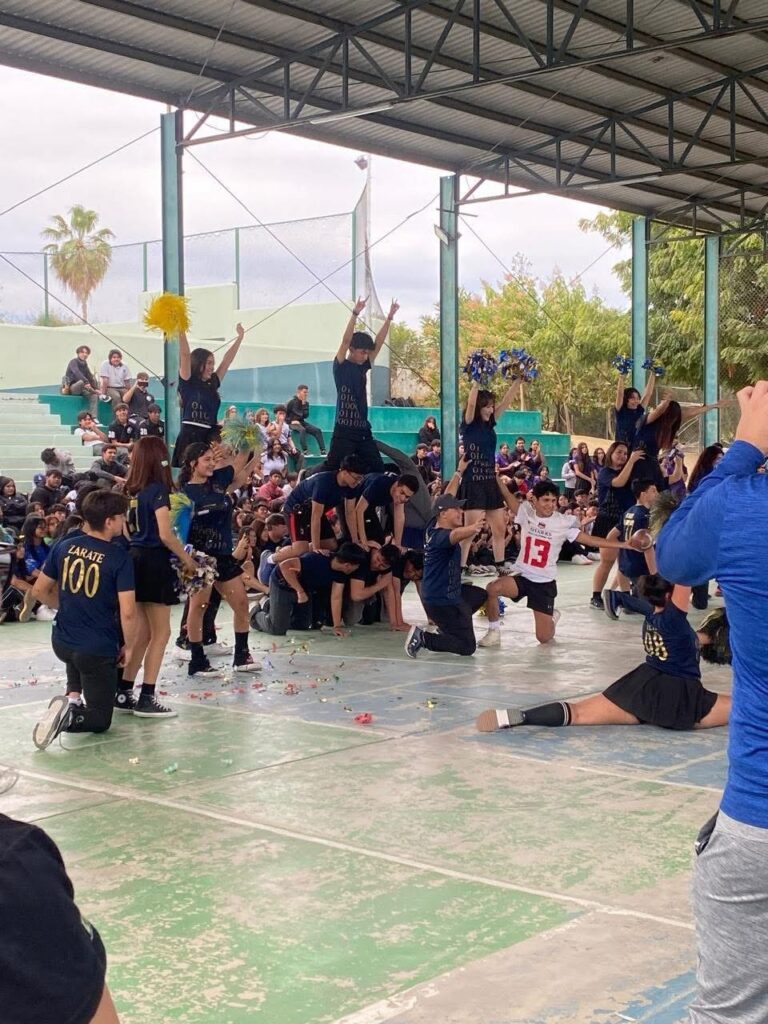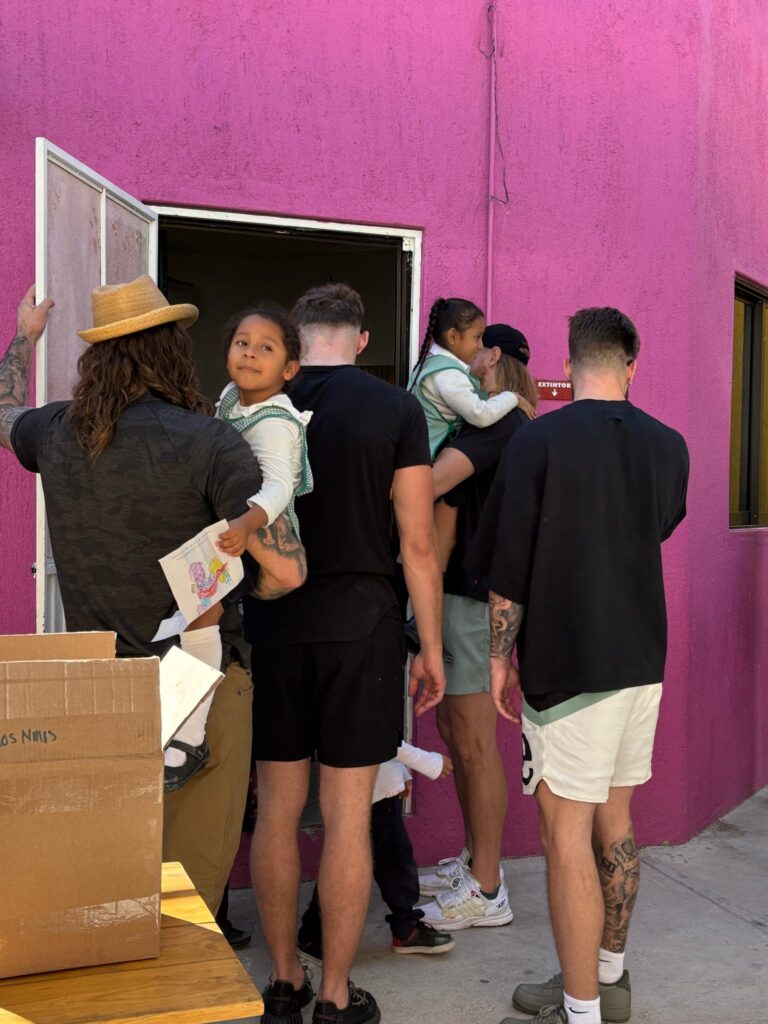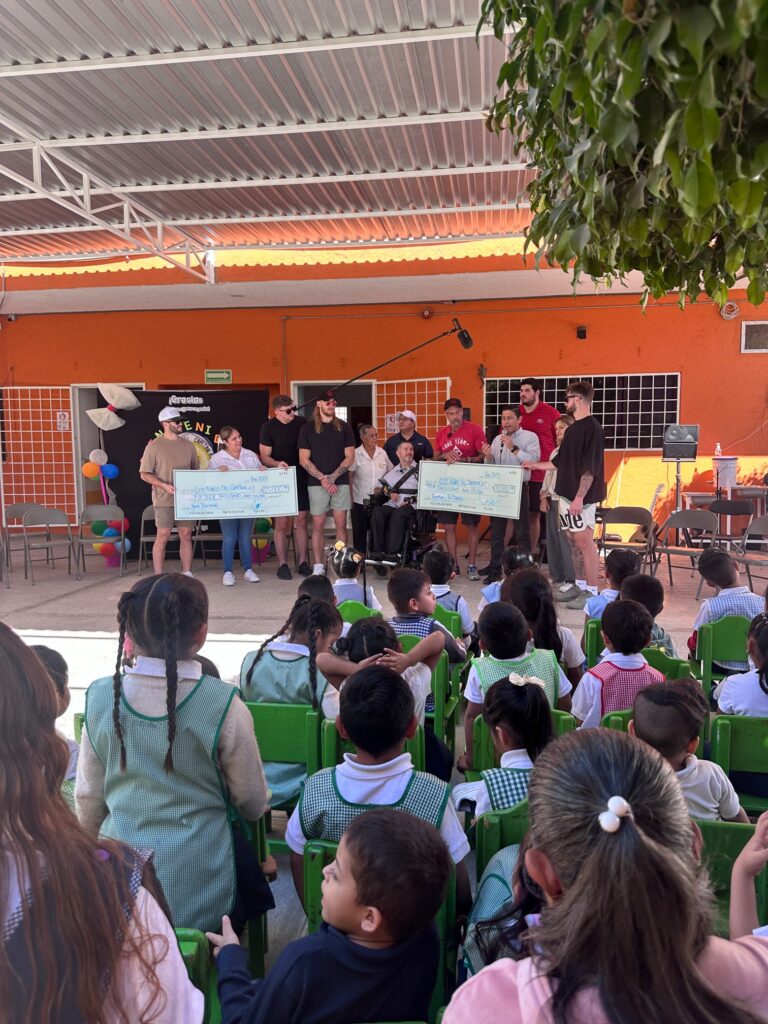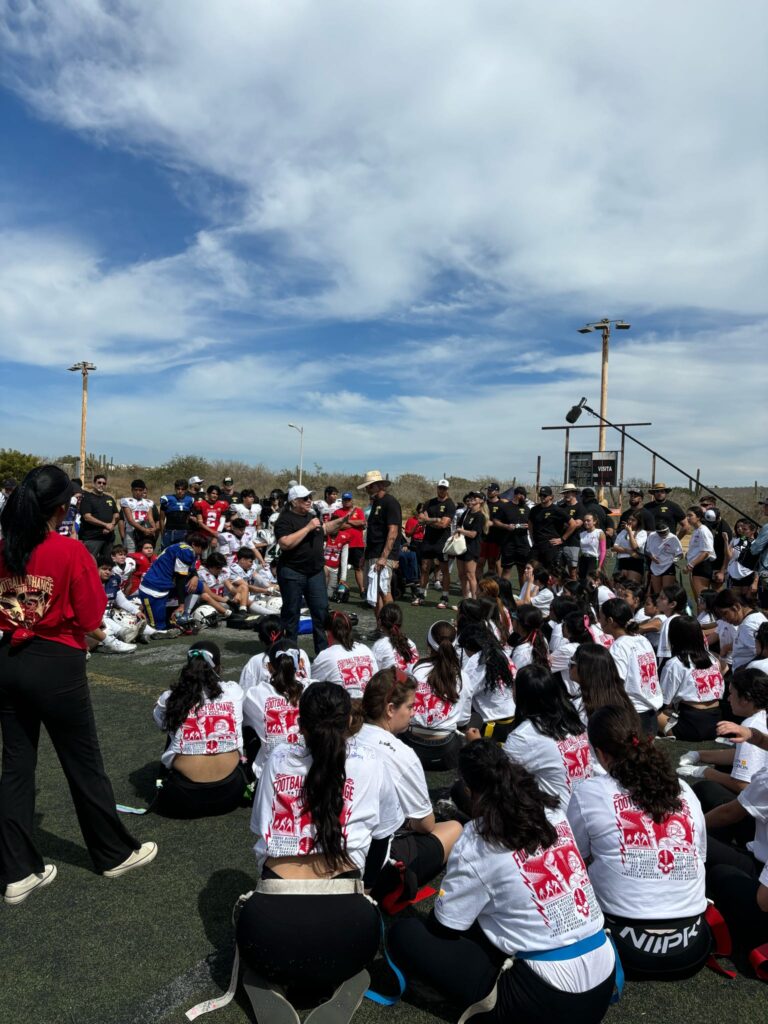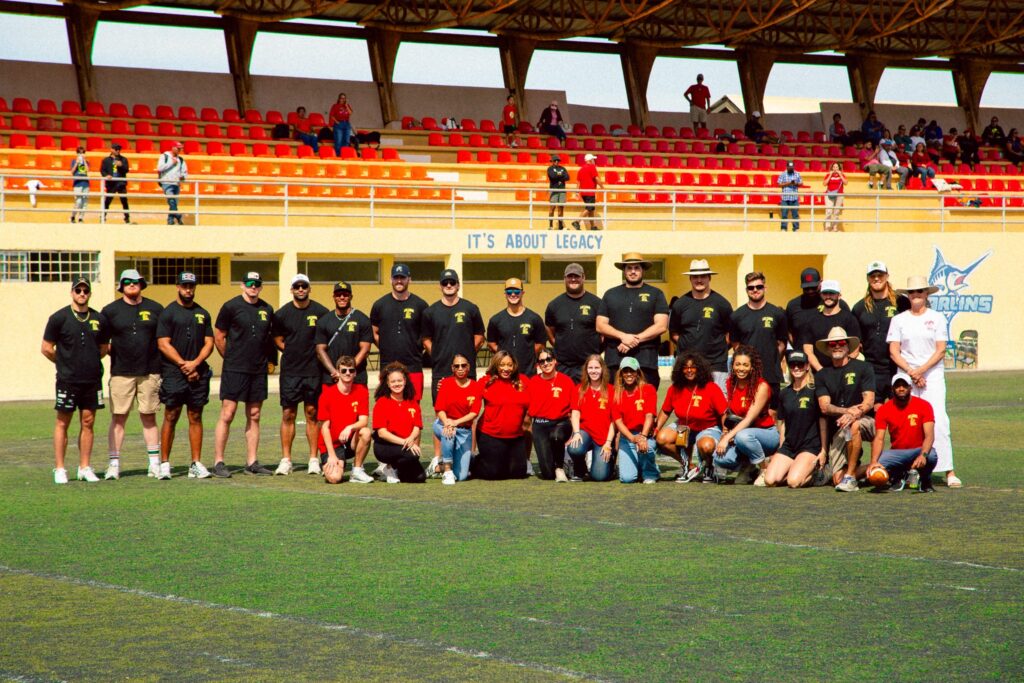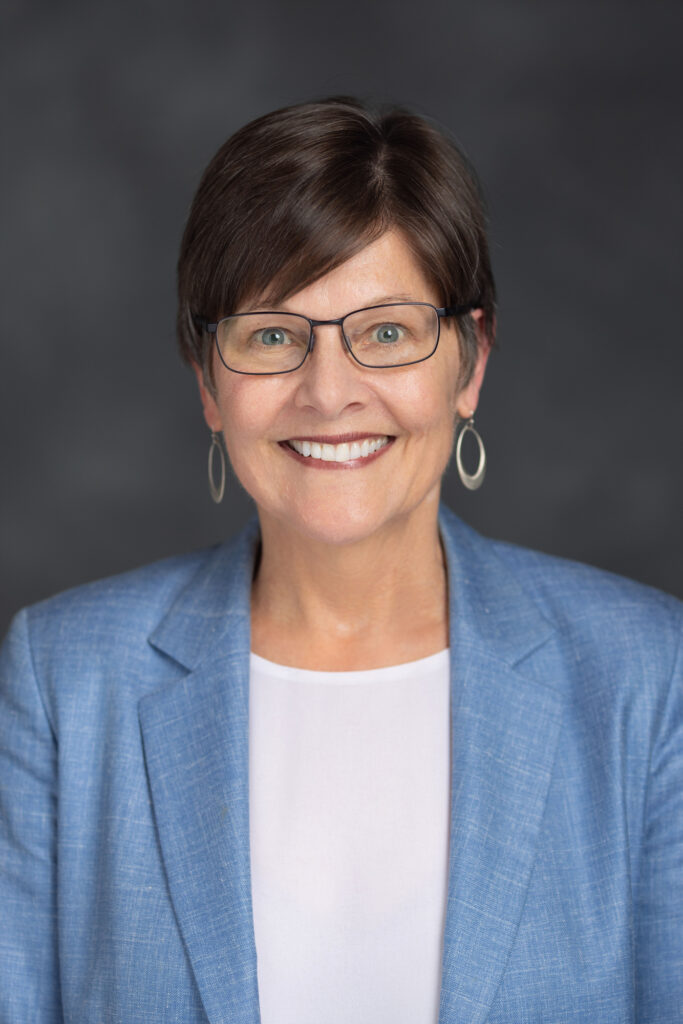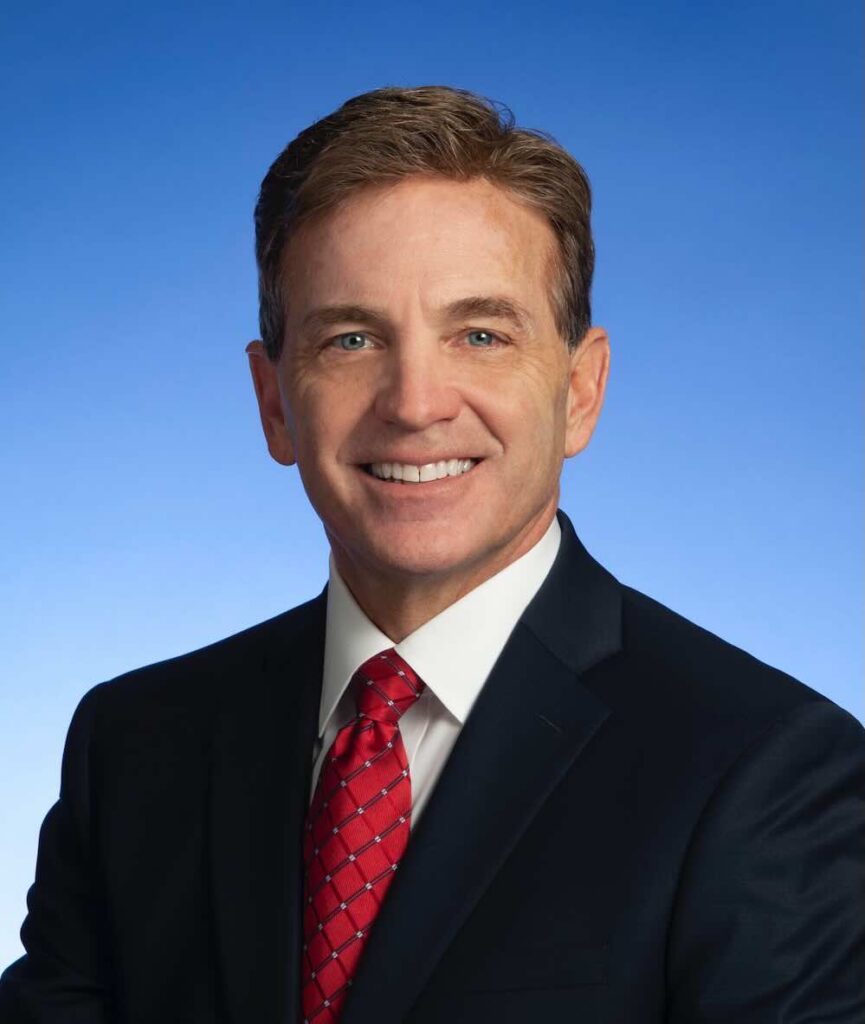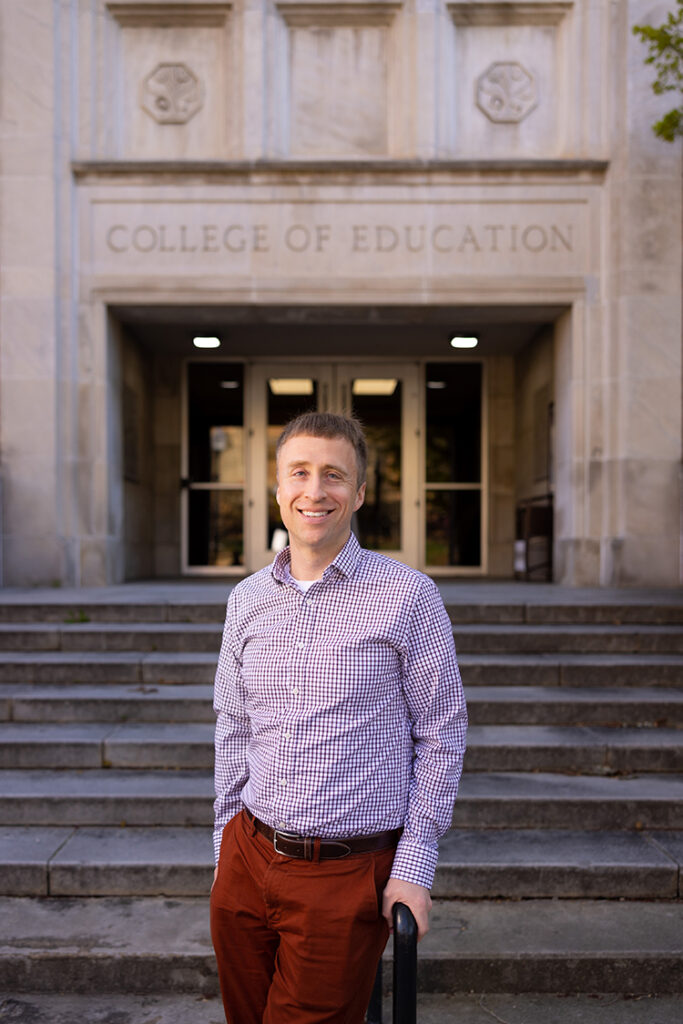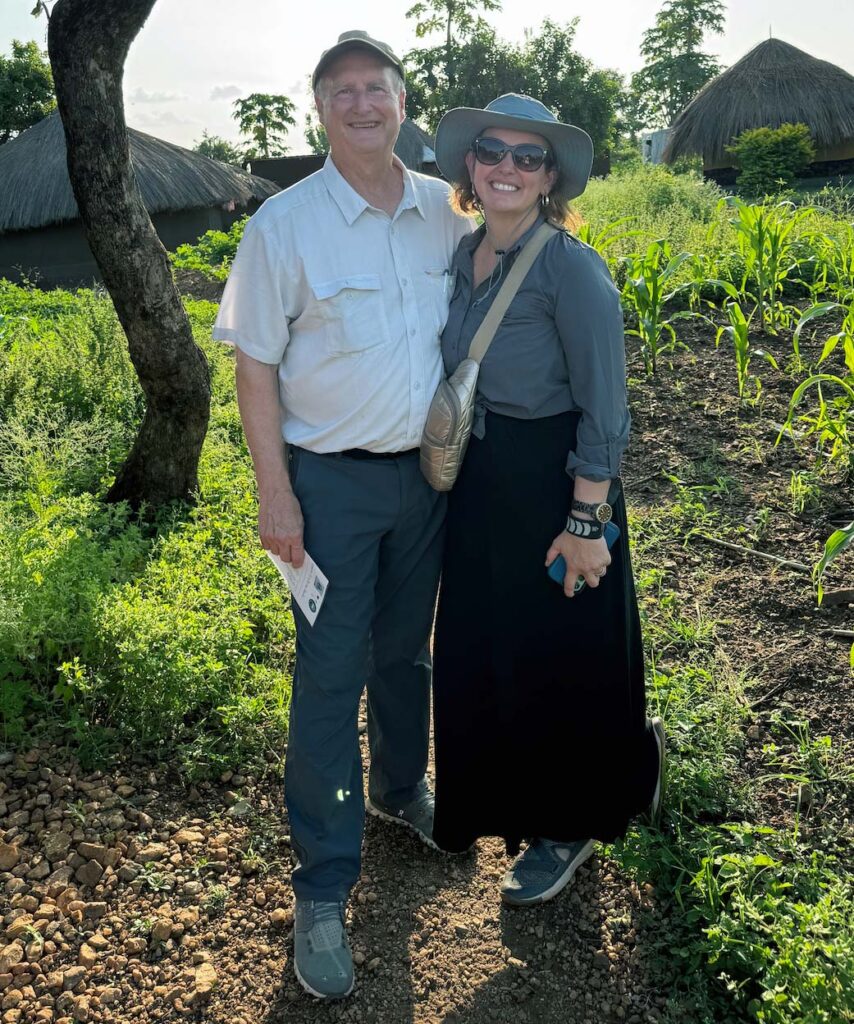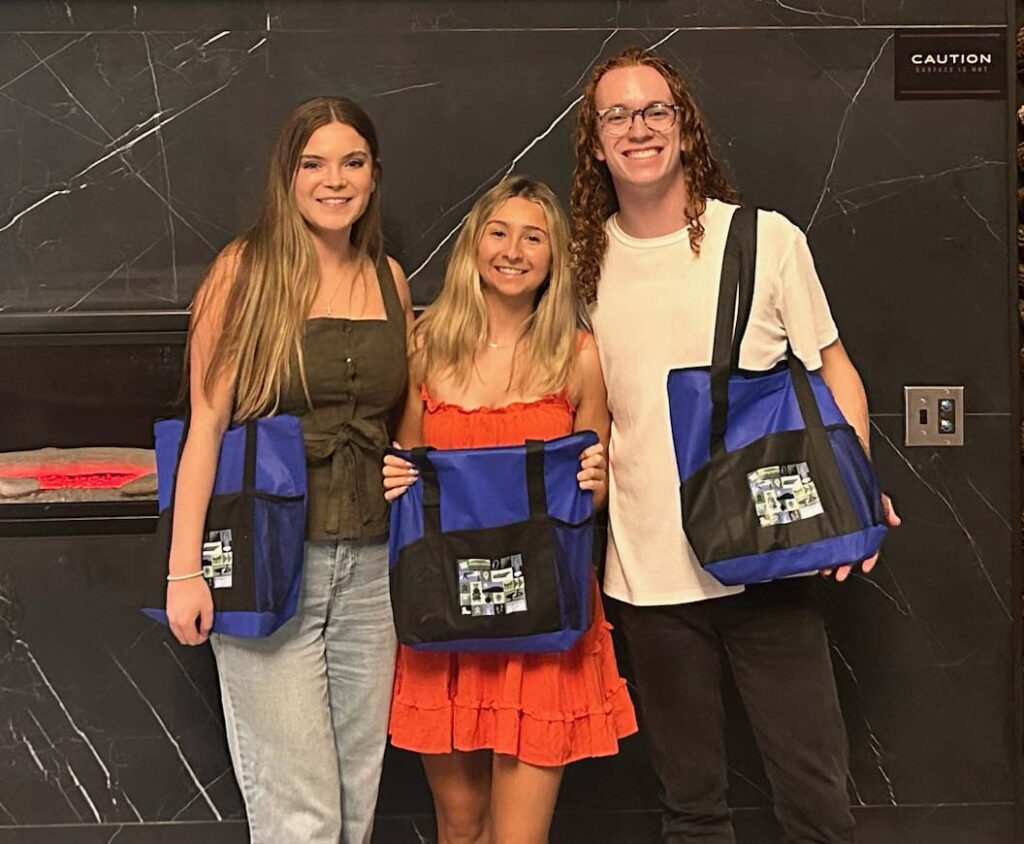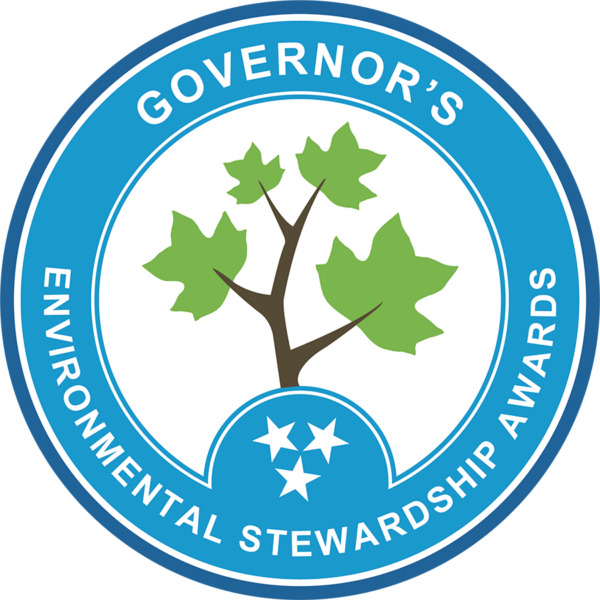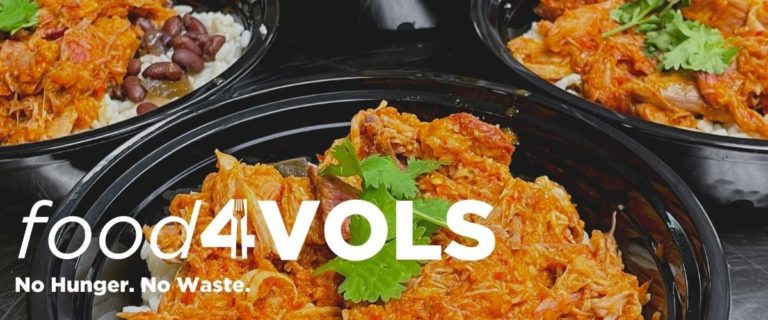The Power of Sports for Positive Change
The Power of Sports for Positive Change
By Jett Hatfield, Senior in Sport Management, Class of 2025
“It’s more than just a game.” “There is more to sports than just what you see on tv.” These are phrases I am sure all of us have heard. When I was younger, I heard these sayings, but I didn’t know entirely what they meant. I had athletes I looked up to and knew sports taught things like teamwork and instilled some good values into people, but I didn’t think too much about the bigger aspect of sports. I didn’t know how much it could affect people, especially people who grew up in different places and didn’t have the resources to watch and play sports as I did. However, as I grew older and started working in sports, my eyes were opened to how much sports really means to people. It wasn’t until I participated in ‘Football for Change’ in Los Cabos, Mexico, with my internship, A.B.C. Sports Foundation, and the San Francisco 49ers that I realized the full extent of the power of sports.
The purpose of this trip was to work with the San Francisco 49ers and their players to create a positive impact in the local community. The day after everyone arrived, we began to implement this purpose. We started with a school visit at José Lucas Manríquez Arípez Elementary School and Los Niños del Capitán (community center) where the impact could be seen immediately. As soon as the kids saw the likes of George Kittle, Ricky Persall, and other 49ers Players, the kids’ faces lit up like it was Christmas morning. They were jumping into their arms, and there is simply no other way to describe it other than they were filled with immense joy. The kids got to talk and interact with the players, and then we got to reveal to them and the rest of the school exactly how we were helping. Thanks to all our partners and sponsors, we were able to donate over $15,000 to help repair the school’s fencing, add on to playground structures, as well as donate footballs and flags for the school to use. Overall, the day was filled with tons of smiles, and it felt amazing to be a part of something so great.

The following day was filled with another school visit and a football camp. There were once again screams of happiness and cheer as they saw some of their favorite players from their favorite team walk into where they go to school every day. This time, however, we were the ones that were in store for a surprise. The school’s football team, band, and cheer team put on a pep rally-type performance where they celebrated the 49ers coming to their school. They had choreographed dances and chants, and it was obvious that so much time and effort went into the school’s performance. It showed just how special and meaningful it was for the 49ers players to spend their time there. We were able to continue making a difference by donating a check and football equipment to this school as well. Later in the day, I got to finally meet someone from the tourism board who we had been working with for months to plan these school visits. She told our team and me that no one ever thinks about the schools when they come to Los Cabos. Los Cabos is a top vacation destination, but even when people come there for a cause, the schools are normally left out. This made everything we were doing feel even more special because we were planting a seed in a place that needed it!
Right after this school visit, we hosted our first football camp of the trip which hosted high school-aged boys and girls that play tackle football. When the players got out of the vans to walk onto the field, it was once again like The Beatles had pulled up to one of their shows. The kids were immediately going up to the players to meet them, but the local coaches were running up even faster! This just goes to show that sports impact all ages. From high school-aged kids to grown adults, the fact that they got to play or coach the sport they love with an NFL team and its stars was like a dream come true to both the kids and coaches. Kids were catching passes from star QB Brock Purdy, linemen were learning how to block from all-pro Trent Williams, and everyone was getting to learn from the best of the best. The 49ers couldn’t have been better this day. They were engaged the whole day, hyping the kids up, celebrating with them after they caught a pass, and they made the kids feel like the stars. It made the kids feel equal. It gave them hope that they could be in the same spot as a Brock Purdy or George Kittle someday. The impact was real, and it was probably a reality that most of those kids never thought they would have the opportunity to be a part of.
On the last day of the trip, we had our last big football camp. This was our biggest event out of them all. It was open for the public to watch, and there were hundreds of people there decked out in 49ers gear to see and check out the 49ers at work. At this camp, we had a tackle football group as well as a flag football group, with half of the campers being girls. Growing the game of football to flag and making it available to not just boys but also girls was a big point of emphasis for this trip. We wanted to show that football is for everyone, and that was done at this camp. Over the course of 4 hours, the campers got t-shirts, autographs and pictures with the 49ers players, and of course, got to learn more about the game they love from 49ers players. To try to put into perspective how excited people were about this camp, I had dozens of people, whether it be people working security, to parents in the stands, etc. come up to me and try to get the campers’ shirts. The shirts had ‘Football for Change’ written and all of the 49er’s attendees’ names on them. People just wanted to say they got to witness this event and show that they were there. It was a big deal to everyone; they knew it was something special, and they wanted to brag to their friends and families that they got to be there. The 49ers were once again so intentional and knew their significance at this camp. They didn’t hesitate to take pictures with the campers and fans and were engaged the whole way through to put a smile on everyone’s face.
Overall, the first ‘Football for Change’ in Los Cabos, Mexico, was exactly what the name was. We used football to create positive change. I probably saw more smiles that one week than I had the whole rest of the year so far. Sports really do create change. They create happiness. They create hope. They create a sense of community. They create a sense of togetherness. They create a positive outlet for kids to relieve stress, learn about life values, and, most importantly, have fun. I might have heard these impacts of sports and even experienced some of these things. However, I didn’t know these things as I know them now until I saw them from a new perspective on this trip. It just goes to show how special sports can be when people come together to initiate change. It is up to not only the athletes, but workers of the sports industry, and even fans of sports to come together to create change and show the true power of sports.
Jett Hatfield is a senior majoring Sport Management in Kinesiology, Recreation, and Sport Studies with a minor in Business Administration. This trip was through his internship with the A.B.C. Sports Foundation. Jett is slated to graduate in May.
